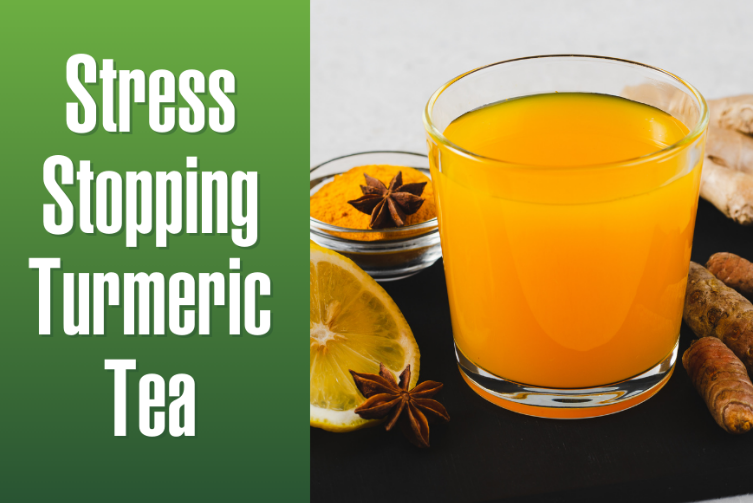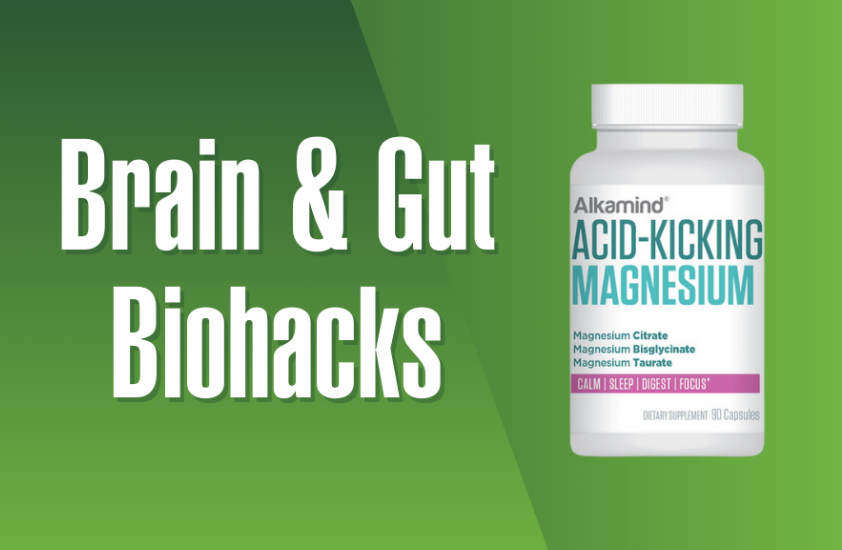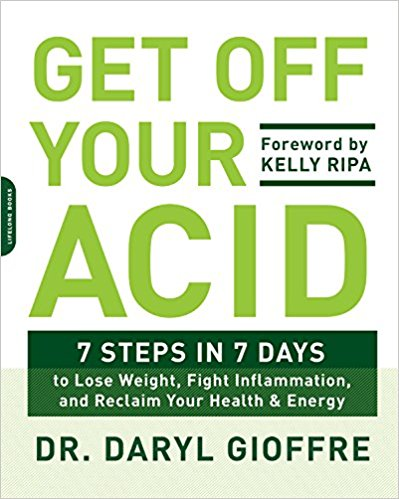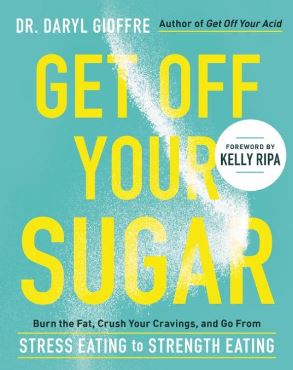 This is one of those topics where there are so many misconceptions out there these days, especially since SO many doctors and nutritionists are instructing you to eat this food I am going to talk about today!
This is one of those topics where there are so many misconceptions out there these days, especially since SO many doctors and nutritionists are instructing you to eat this food I am going to talk about today!
I’m going to set the record straight and answer all of the questions I get about fermented foods so you can know you’re making the right call for you.
Foods like sauerkraut, kombucha, kefir, and kimchi are sources of pre and probiotics, which means they help your digestive track naturally produce good bacteria.
Unfortunately, what many people don’t realize is that in the fermenting process, these foods also contain a high amount of YEAST, an opportunistic parasite that makes them highly acidic to your body.
Today we’re going to get into the nitty-gritty of fermented foods – what to like about them, what to dislike, and what to absolutely avoid.
What is Fermentation?
Fermentation is a metabolic process that uses yeast and bacteria to convert sugar to acids, gases, and alcohol.
While many people tout fermented foods and beverages as good for you, there are a lot of acidic consequences that are anything but good for you.
There can be good probiotic benefits to fermented foods, but the fermentation process, just like alcohol, is highly acidifying to your body (so why not just take the probiotic, minus the ACID!).
It’s also unlikely you’ll get the probiotic effects at all with many store-bought fermented foods. Most commercially available yogurt, kefir, and kombucha are pasteurized, which kills all of the bacteria (including all the good stuff too).
Even if you make them at home, it’s easy for mold to develop, which can irritate the digestive system, and even cause cancer development in your body.
This is why fermented GRAINS (read beer) are the single-handed worst fermented food you can put in your body!
When it comes to fermented grains, which are found in breads and many alcohols, definitely avoid them because of their ability to become impregnated with fungal mycotoxins, nasty cancer-causing toxic substances you need to avoid like the plague.
So, All Fermented Foods Are Bad?
Assuming your digestive system was working 100% (which no one’s is, but let’s assume), then fermented foods in moderation would be fine.
But here’s the problem – 100% of the population (children and adults alike) have a condition called leaky gut where toxins, undigested food particles, yeast, fungus, and mold infiltrate though the gut barrier, invading your blood.
When this happens, your blood becomes acidic and inflamed, and there is a horrible knock-on effect that happens. You see, its ok for you to have yeast in your gut…everyone does.
But you should NEVER have yeast in your blood. Yet in the thousands of Live Blood Cell Analysis samples I have collected and analyzed, I have seen it in every sample.
Well, where does this yeast come from? You got it, fermented foods like we mentioned earlier, even foods like yogurt!
See below what these little yeast parasites look like:

Kombucha is made by the process of fermentation, which is a metabolic process that uses YEAST and bacteria to convert sugar to acids, gases, and alcohol.
While it is a great source of probiotics, why not just take a probiotic instead – they are more concentrated, minus the deleterious effects of the yeast!?!
You see, the doctors and nutritionist are recommending these foods in THEORY, because they THINK they are going to help your gut heal - but they are NOT seeing what happens to your blood when you consume yeast in any form.
The statistics are dead WRONG about leaky gut – it does not affect 80% of the population, it effects 100%, and foods like sugar, grains, dairy, artificial sweeteners, and drugs like antibiotics and steroids have opened up the floodgates to allow the easy entry of these dangerous MYCOTOXINS into the bloodstream.
Popular fermented beverages like Kombucha come filled with saccharomyces yeast, bacteria, carbonation, some sugar, caffeine, and alcohol—an acidic nightmare!
In fact, the powers that be are considering classifying Kombucha as an alcoholic beverage, because in many cases, the fermentation process converts it to OVER the legal .08% limit!
Stick to water with lemon, dissolve some hydrogen to reduce inflammation and repair the gut lining, take a good refrigerated probiotic, and be sure to take a daily dehydrated greens supplement to alkalize the microbiome, blood, and body.
There is a time and place to eat fermented foods if you so desire, because they can be sources of good bacteria, vitamins, and antioxidants.
IF you are going to eat them, do so in moderation. The best sources are sauerkraut, kimchi, and pickles. As part of the 80/20 alkaline diet, I enjoy pickles and kimchi from time to time.
However, there are caveats.
If you are having a health challenge with cancer or candida (yeast), avoid ALL fermented foods.
Yes, this goes against much of the advice out there about treating candida. But the fact is, adding yeast to a body that is already dealing with a yeast problem is like adding gasoline to a fire.
 If you are going to consume fermented foods, there are some you should avoid — most notably yogurt, nutritional yeast, kombucha, and kefir.
If you are going to consume fermented foods, there are some you should avoid — most notably yogurt, nutritional yeast, kombucha, and kefir.
Like Kombucha, Kefir is another one that many health nuts will tell you is nutritious. Traditional kefir is a fermented drink made from cow’s milk and kefir grains. The fermentation of the lactose sugar yields a sour, carbonated, slightly alcoholic beverage, with a consistency and taste similar to thin yogurt. The kefir grains initiating the fermentation are highly acidic, consisting of lactic acid, bacteria, yeasts, in a matrix of proteins, lipids, and sugars. You most certainly want to avoid this one as well (please don’t shoot the messenger 😊).
The Ultimate List of Fermented Foods
As you can tell, fermented foods are a mixed bag. While you don’t need to completely avoid all of them, you do need to know what you’re getting yourself into. And in many cases, you might not even realize you’re eating fermented foods.
So, I’ve put together a complete list of fermented foods eaten in America…
Avoid:
- Yogurt
- Kefir
- Sour cream and crème fraîche
- Buttermilk
- Beer
- Wine
- Cider
- Sake
- Kombucha
- Lassi (Indian drink)
- Breads made with yeast like sourdough
- Miso (fermented soy)
- Tempeh (fermented soy)
- Japanese natto
- Nutritional yeast
- All vinegar
- Sauces and dressings containing vinegar (check labels)
- Soy sauce (except gluten free tamari)
- Fish sauce
Enjoy in Moderation:
- Pickles (cucumbers, beets, etc.)
- Sauerkraut
- Kimchi
What about Apple Cider Vinegar (ACV)? 
ACV can go either way. It is made by fermenting the sugar from apples. This turns them into acetic acid, which is the active ingredient in vinegar.
So, like all fermented foods, we are dealing with the yeast issue and need to avoid it, UNLESS you have severe Acid Reflux.
If you are dealing with a moderate to severe form of Acid Reflux, I give you the green light to use ACV.
That’s because reflux can irritate and ulcerate your esophagus lining, which when chronic, can contribute to esophageal cancer, something I unfortunately know too much about with the passing of my father last year.
We found out hindsight that he had reflux for YEARS, and that constant exposure to ACID not only caused a massive ulcer in his esophagus, but led to his diagnosis of esophageal cancer (you can read about this story in my new book Get Off Your Acid. It is the opening story, and is so shocking, you will think I made it up. In the book, I share with you all of my best secrets to prevent this from ever happening in your body).
In regards to reflux, the reflux-fighting properties of ACV supersedes the yeast issue. That, combined with Daily Minerals, will do the trick.
Alternatives to Fermented Foods
If you want a flavorful tea, try the acid-crushing Turmeric Lemon Ginger Detox Tea instead. It’s so much better for your insides than kombucha is, and I think you’ll love the taste just as much.
If you’ve been eating fermented foods for the pre or probiotics, there are several better ways to keep a good bacteria balance in your digestive system.
First, take a good probiotic supplement.
Second, eat more coconut oil, which kills candida.
Third, spice up your food with turmeric and garlic, which have anti-fungal properties. And finally, add flax and chia seeds to your meals, which support good gut bacteria.
So many sauces are fermented or contain vinegars that are fermented as well. The best alternative is to make your own using lemon juice as the acid. As a soy sauce alternative, use Bragg’s Liquid Aminos or gluten-free tamari, or my favorite option, Coconut Aminos.
When it comes to fermented alcoholic beverages, avoid them in favor of distilled options like gin, rum, tequila, and vodka (as long as they are grain-free, and drink them straight-up, and don’t mix them with sugary drinks).
Instead of chocolate, stick to raw cacao nibs, which are not fermented. And rather than breads that rely on fermentation, switch to Ezekiel bread.
Want more ideas for kicking acid to the curb and instead, enjoying alkaline, delicious alternatives?
 My new book, Get Off Your Acid: 7 Steps in 7 Days to Lose Weight, Fight Inflammation, and Reclaim Your Health and Energy, is full of recipes, tips, and ideas to take you from sluggish and in pain to healthy, energetic, and slim.
My new book, Get Off Your Acid: 7 Steps in 7 Days to Lose Weight, Fight Inflammation, and Reclaim Your Health and Energy, is full of recipes, tips, and ideas to take you from sluggish and in pain to healthy, energetic, and slim.
 Skip to content
Skip to content








5 comments
Thank you, Dr. Gioffre, for enlighting my nutrition. God bless you
THANK YOU THANK YOU THANK YOU!!! Finally, you’ve given me clarity on this issue. I’ve had candida and leaky gut issues for many years and would periodically try to include fermented foods in my diet. Every time, within a few minutes, my face would flush and get itchy. I knew WHAT was happening, but never understood WHY. I’ve never been able to touch alcohol of any kind. I can now put this little mystery to rest. Thank you so very much for your emails and sharing valuable knowledge which helps truly heal those of us who have health issues.
Daryl, I like most of your articles but on this one i have to comment. First of all there are good yeasts and bad yeasts. As well as good bacteria and bad bacteria. For example the saccharomyces yeast you talk about in kombucha is a good yeast, considered the “yeast on yeast”, yeast. It kills and rids you of bad yeast like candida. Candida overgrowth is most likely the main cause of leaky gut! Eating these probiotic “living foods” regularly, eating a well balanced diet and avoiding antibiotics and steroids, is the best way to avoid pathogenic yeast and bacteria overgrowth in the body thus reducing the risks of leaky gut syndrome as well as other digestive issues, like acid reflux, indigestion, constipation, etc. There are a lot more benefits from eating these “living foods” than there are risks. Further more, cultures around the world that consume these foods have far less problems with digestive issues than we do here in the USA.
Does that also include coconut yogurt and coconut kefir?
There is a product called cocoyo living coconut yogurt. I found this all very educational as I know I have leaky gut but have been doing the fermented drinks thanks for this information .
So much conflicting information ?
Thanks Nancy
Please take me off your list. Thank you